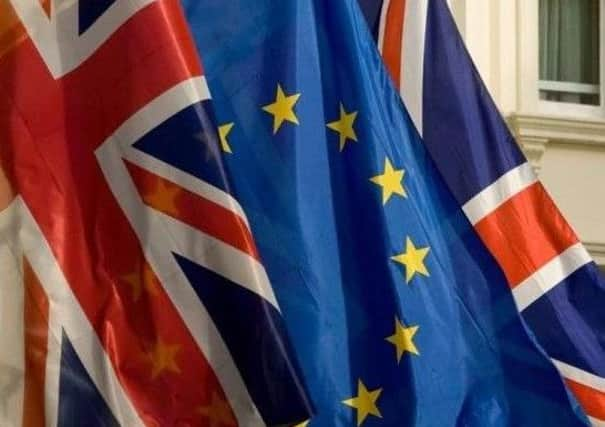Fall in migration sparks fears of post-Brexit labour shortage


The latest estimates from the ONS show a year-on-year drop in net migration of 49,000, bringing the overall rate for the year ending September 2016 to 273,000.
The results have been welcomed by ministers as an “encouraging” sign that the Government is on its way to achieving its target of keeping net rates below 100,000.
Advertisement
Hide AdAdvertisement
Hide AdBut businesses and politicians have expressed concern about the sudden drop off in both EU and non-EU migration, warning that if trends continue Britain could face a labour shortage.
The ONS figures are the first to include data from the several weeks after the EU referendum in June. They show that overall immigration to the UK has fallen from 619,000 in 2015 to 596,000 last year, while net migration from EU member states fell to 165,000 – the lowest level since 2014.
Immigration minister Robert Goodwill yesterday described the decline as “encouraging”. But the Scarborough and Whitby MP urged against getting “carried away”.
“This is just one set of statistics... We will continue to make progress to bring down net migration to the tens of thousands,” he said. “The UK will always welcome those who contribute and benefit our country, but there is no consent for uncontrolled immigration.”
Advertisement
Hide AdAdvertisement
Hide AdAlp Mehmet, vice chairman of Migration Watch UK, also described the figures as “a step in the right direction”. However, Seamus Nevin, head of employment and skills at the Institute of Directors, struck a different tone, as he described the drop-off as “the first sign of the effect on immigration since Britain voted for Brexit”.
He said the fact that EU nationals are starting to leave because of the “climate of uncertainty” is a “worrying” sign for employers and businesses.
His warning follows recent calls from agricultural leaders for the Government to provide greater guarantees over future access to migrant labour. Addressing the NFU conference on Tuesday, president Meurig Raymond claimed food would “rot in the fields” unless farmers can find a reliable workforce.
The influential IPPR think tank has also warned that “significant shifts” in the migrant population will have “considerable impacts” on the wider labour market. Responding to the ONS figures, spokesman Phoebe Griffith suggested the Government needs to act quickly to ensure UK employers “are not hampered by labour shortages”.
Advertisement
Hide AdAdvertisement
Hide AdThe figures also reveal a year-on-year drop of 41,000 in the number of international students coming to the UK to study.
Sheffield MP and Labour Shadow Brexit Secretary Paul Blomfield said this was a “huge concern”, and a sign that the Government’s net migration target is “unworkable”.
“International students make us all better off, bringing thousands of jobs to cities across Yorkshire,” he told the Yorkshire Post.
“This is an act of self-harm, which must be reversed.”